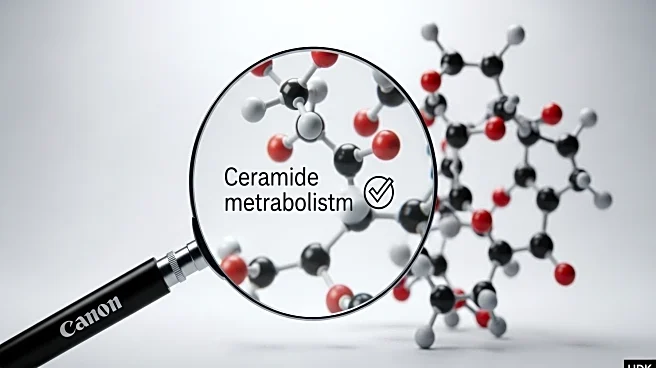What's Happening?
A research team has issued corrections to their study on ceramides metabolism and its role in cancer metastasis. The study, originally published in Signal Transduction and Targeted Therapy, identified errors in several figures, including Fig. 6g, Supplementary Fig. S5f, and S10c. These errors involved incorrect image placements and data misinterpretations related to the treatment conditions of K30P and K450P cells. Despite these errors, the team clarified that the corrections do not affect the study's original conclusions. The study focused on the metabolic vulnerabilities exposed by dysregulated ceramides metabolism, which could be targeted to inhibit cancer metastasis. The researchers have provided corrected figures to ensure accurate representation of their findings.
Why It's Important?
The corrections are significant as they ensure the integrity and accuracy of scientific research, which is crucial for advancing cancer treatment strategies. The study's focus on ceramides metabolism offers potential pathways for developing therapies to combat cancer metastasis, a major challenge in oncology. Accurate data is essential for researchers and clinicians who rely on these findings to inform treatment decisions and further research. The corrections help maintain trust in scientific publications and ensure that subsequent research builds on a solid foundation.
What's Next?
The research team will continue to explore the implications of ceramides metabolism in cancer treatment, potentially leading to new therapeutic approaches. Other researchers in the field may use these corrected findings to further investigate metabolic vulnerabilities in cancer cells. The study's corrections may prompt additional scrutiny and validation of similar research to ensure accuracy and reliability in scientific publications.









